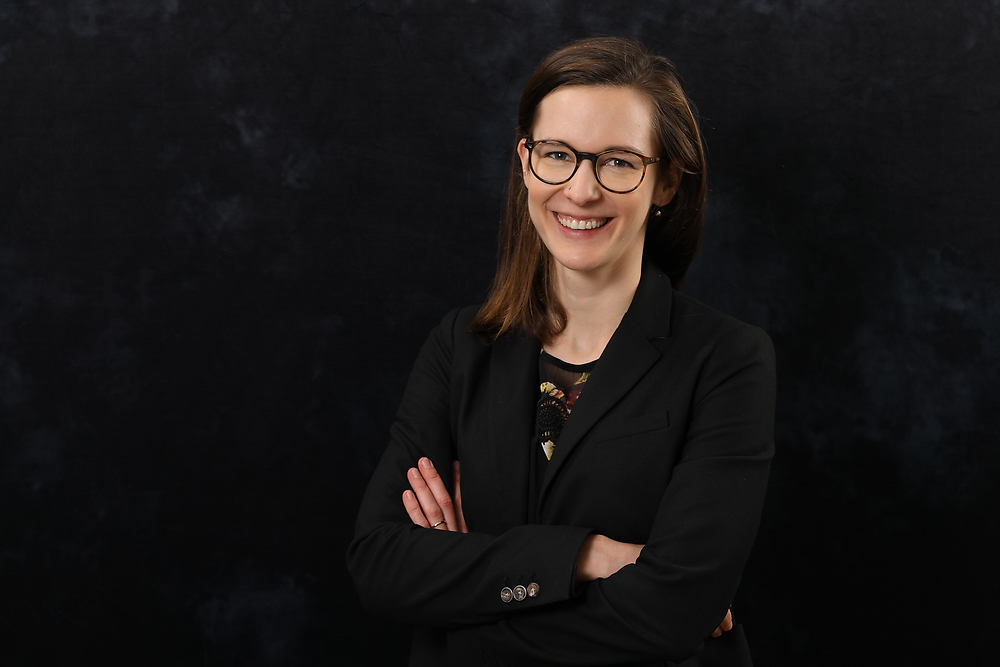February 11, 2020 | News | International Day of Women and Girls in Science
Women in Demographic Research

© MPIDR/Hagedorn
In Germany, more women obtain bachelor’s degrees than men for some years now. However, the more advanced an academic career is, the fewer women there are. The United Nations is raising awareness of this issue with the International Day of Women and Girls in Science. The Max Planck Institute for Demographic Research employs almost as many female scientists as male scientists. Yana Vierboom is one of them.
Ms. Vierboom, you are broadly interested in health and mortality in the United States. What are you currently working on specifically?
One of my main goals for the next month is to send the third chapter of my dissertation to a journal. The paper is about health at the end of life. There are concerns that as we live longer, the added years might not be healthy years. So in the paper I look at whether the amount of time people spend in poor health in the last 6 years of life has changed over time. I also compare different groups. For example, I find that women spend more time with a disability at the end of life than men.
Is everything going smoothly?
It’s difficult to find time to work on this project! The PhD program I was in required our dissertation chapters to be single-authored, so I’m on my own on this project. It’s hard to prioritize doing work on my own project when there is so much other work to do with co-authors.
Daniela Negraia and you are two female scientists at our Institute who receive additional support through the Max Planck Society’s career building program, Sign Up!. What is the experience like for you?
The aim of the program is to encourage female postdocs in the Max Planck Society to pursue an academic career. There are three main sessions throughout 2020 with workshops on things like career planning, navigating job markets, and management styles. I heard about the program from a postdoc who participated a few years ago. She said it was a wonderful experience and encouraged everyone to apply. The program is also a chance for all of us to build a network of awesome fellow scientists.
How are you benefiting from the program?
We’ve already had one session and the women I met there were so inspiring. They were studying things like particles in space and ferret brains.
We know how important reliable networks are. What else would you tell young women who want to start a career in science?
There is no picture of what a scientist looks like. If you feel like you don’t fit in, that’s perfect! Science works best when we ask thoughtful and creative questions. So the more perspectives there are, the better. Just keep being curious and asking questions.
Do you have a role model yourself?
I have different role models for different things. Michelle Obama has such grace and Kate McKinnon has a great sense of humor. From the fictional world, I like Lisa Simpson because she is both smart and kind, and I absolutely love Phryne Fisher’s confidence. And, of course, there’s my mom—who is pretty much all of those women in one.
More Information
About Yana Vierboom
Yana Vierboom started working as a research scientist at the Max Planck Institute for Demographic Research last summer, after finishing her PhD at the University of Pennsylvania earlier that year. She is broadly interested in health and mortality in the US. Her personal website
Most recent publication
Although life expectancy of 65-year-olds in the United States has increased throughout the entire US over the last two decades, increases have been largest for major cities and areas along the east and west coasts. As a result, mortality differences between these leading areas and the rest of the country have grown.
Vierboom, Y., Preston, S. Life Beyond 65: Changing Spatial Patterns of Survival at Older Ages in the United States, 2000-2016, The Journals of Gerontology: Reihe B. DOI: https://doi.org/10.1093/geronb/gbz160
About the International Day of Women and Girls in Science
The United Nations are celebrating this year’s International Day of Women and Girls in Science with a conference in Paris. You can join the conversation using #WomenInScience on Twitter.